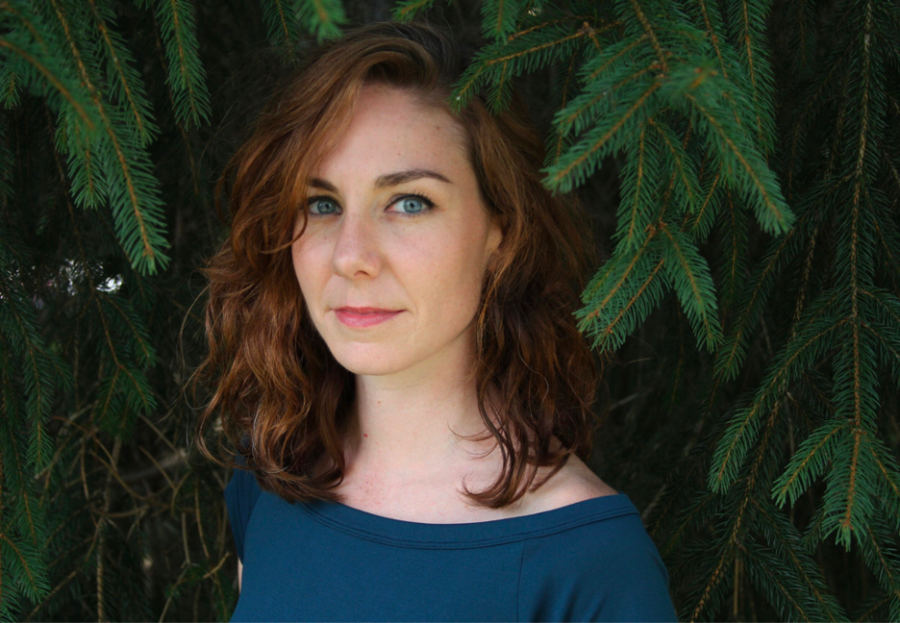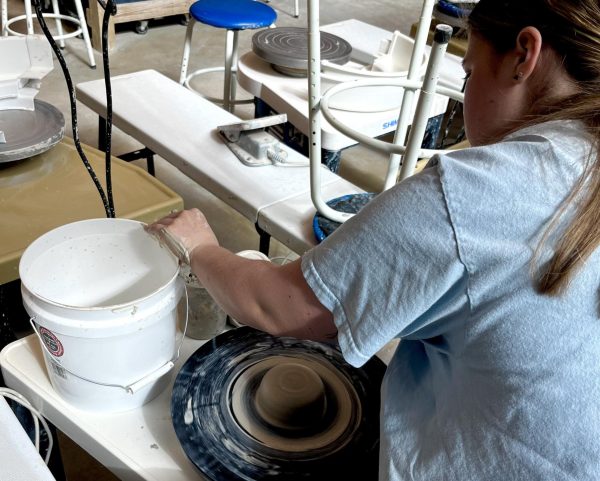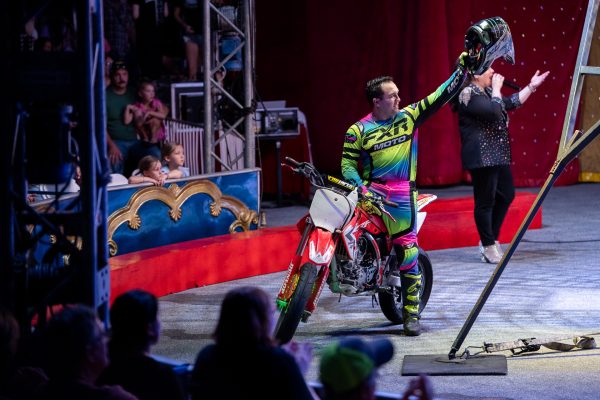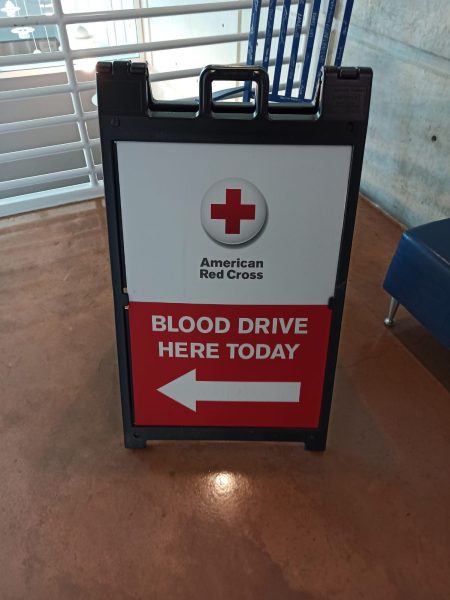Award-winning author teaches first horror writing class at UNC Asheville
Taylor Sykes poses for a photo.
Ghouls, ghosts, aliens and serial killers fill the air as UNC Asheville is offering horror fiction writing for the first time in school history.
Award-winning fiction author Taylor Sykes guides students through the process of writing horror stories in her What We Write in the Shadows course, which meets every Monday and Wednesday.
“Given that horror is a creative interest of mine, I was eager to bring that genre to UNCA’s English department. Students don’t always have many opportunities to explore genre and speculative fiction, and this class welcomes those who write non-realist fiction,” Sykes said.
The class spends time studying texts from a range of subgenres, including folk horror, haunted houses, science fiction, monsters, slashers and meta-horror. Additionally, the class examines a broad spectrum of fiction and film, where they track the stylistic techniques and tropes apparent in both classic and contemporary works of horror.
“Horror is, by nature, an intentionally unsettling genre. In this class, I ask my students not to shy away from fear — rather embrace, confront and harness it in language,” Sykes said. “Fears of the unknown are universal, and this class allows students to investigate the unknown in a safe space. Even though we cover some darker material, we laugh a lot in class in order to make light of horror,” Sykes said.
The fiction author studied creative writing and English at Purdue University. She continued her education at N.C. State where she received her MFA in fiction. After school, Sykes published several short stories in the horror genre and a standalone novella. She won the 2017 James Hurst Prize for Fiction.
“I feel incredibly privileged to be able to work with professor Sykes in this class. It is invigorating to be able to work with an experienced author in the field, and it encourages me to produce the best writing I can, as well as continuously work to improve,” said senior Catherine Sawyer.
Sawyer said they are taking the class because of their deep love for the horror genre.
“I was ecstatic to see this class offered, as I feel it gives me the experience I was lacking in developing my horror writing craft. I believe horror doesn’t just serve to scare us, but to hold up a mirror to the darker sides of humanity, allowing us to explore topics and events that are traditionally regarded as unsavory. But sometimes it’s also just fun to get scared,” Sawyer said.
Sykes said by exploring a range of fiction and film, students are able to gain an understanding and appreciation for the literary devices present in both types of texts, and then experiment with those techniques in their own stories.
“I love the community of the class. We are encouraged to speak freely and honestly with each other, and it is so inspiring to be in a room of other writers passionate about the topic. I have also loved the assigned readings and films. I often enjoy horror media in my free time, but analyzing classic horror works with a group of enthusiastic writers gives me an even greater appreciation for them,” Sawyer said.
Senior Jacob Sharpe said they have never been a big fan of horror films. They were introduced to horror literature during readings in a course taught last semester by Associate Professor Anne Janson.
“I found a love for horror literature I never expected, considering horror films are not my favorite genre of film,” Sharpe said.
Students say they enjoy writing outside the normal fiction pathway. They expressed how this class is beneficial to their academics.
“My main goal was to allow students an opportunity to write outside of conventional ‘literary fiction.’ Horror is also a really welcoming genre and provides so much diversity of narrative. People also tend to see horror as a strictly shock value genre, but it can be so much more than that,” Sykes said.
The professor continually asks, “What makes a good horror story?” Students respond in various ways.
“I believe there are many elements that can make a horror fiction story good; however, I do have my own specific interests when it comes to horror writing. I am more of a character driven writer, so I tend to put more focus on novels that focus on their characterization. With that being said, certain stories we’ve read that include amazing characterization would be “We Have Always Lived in the Castle” by Shirley Jackson and “The Strange Case of Dr. Jekyll and Mr. Hyde” by Robert Louis Stevenson. These stories provide characters that have intriguing and oftentimes absurd motivations that further the horror/gothic elements that the author attempts to portray along with the typically dreary and dark settings,” Sharpe said.
Sykes said the class has had a lot of fun freaking themselves out this semester, and she hopes to be able to teach the class again.
“A good horror fiction story should make you feel an emotion. It can scare you, unsettle you, disgust you, interest you, or countless other strong emotions. Good horror doesn’t necessarily have to be scary, but it should leave a lasting impression on you. Narratives speak to each reader in a different way, and they serve to open our eyes to something new, whether it be about your internal self or about the external world. Sometimes, good horror just leaves you feeling like you read something wonderful and that’s important, too,” Sawyer said.


![Brooke Pedersen [second from the right] and Luis Reyes [right] hold banners during the Wrap The Woods event.](https://thebluebanner.net/wp-content/uploads/2025/09/ELIZABETH_PRITCHITT_IMG_3470-1200x804.jpg)


















